Three men who suffered nerve damage to their hands, agreed to amputate and replace their paralyzed limbs with prosthetics that can be controlled by their thoughts.
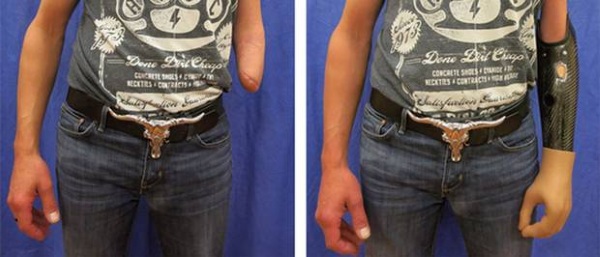
Specifically, the men suffered damage to the brachial plexus — the bundle of nerve fibers that run from the spine to the hand. All three attempted to repair those nerves during separate operations, but despite medicine’s best efforts, their arms and hands remained paralyzed.
Enter technology.
What was unique about all three is that there were still some nerve fibers present — not enough to keep the hand alive, but just enough to drive a prosthetic hand, explained Oskar Aszmann, who carried out the experimental procedures at the Medical University of Vienna, Austria.
Before the amputation / replacement could take place, the patients needed to prepare their bodies and minds. First, Aszmann transplanted leg muscle into the patients’ arms to boost the signal from the remaining fibers. Three months later, after the nerves had grown into new muscle, the men began training their minds to operate the prosthetic.
They practiced activating the new muscle area using an armband of sensors that picked up the electrical activity. They then moved on to controlling a virtual arm by activating the muscle with their thoughts. When they were deemed ready, Aszmann amputated their hands, and replaced the missing limbs with a prosthesis that could be controlled similarly to how they trained.
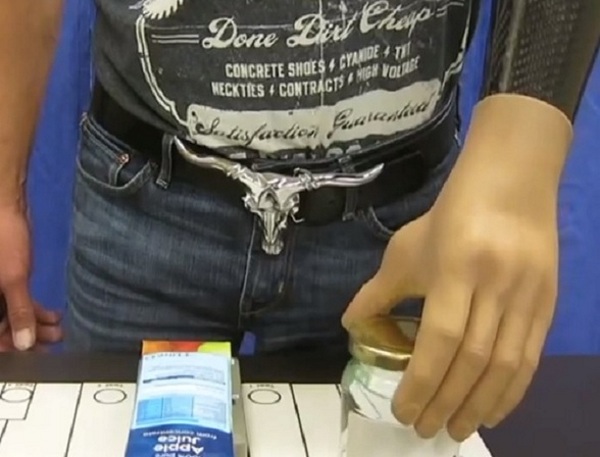
“I was impressed and first struck with the surgical innovation,” said Dustin Tyler of the Louis Stokes Veterans Affairs Medical Center, to the New Scientist. “There's something very personal about having a hand; most people will go to great lengths to recover one, even if it's not very functional. It's interesting that people are opting for this.”
Aszmann’s approach is unique in that it uses grafted muscles to relay signals from the brain to a prosthesis. Others read brain waves directly, and use these signals to control the hand.
Tyler added that one of the advantages of elective amputation is that it allows the surgeons to plan exactly where the cut will be made, and how the prosthesis can graft to the wearer’s skeleton for better stability.
“I'm not sure we need to replace hands perfectly,” says Tyler. “You may not play the piano yet, so rather than replacing the hand, the goal is to make you forget you lost it.”
Another benefit in using a prosthetic hand is that it comes with its own power source; that is, it can be removed and re-charged every night. Being able to use electricity to power the hand means all the muscles and nerves in the patient’s arm need to do is send the right signals to the prosthetic.
For Aszmann’s patients, their prosthetic hand clearly works better than their biological one. Following the operations, all three were able to pick up a ball, pour water from a jug, and button their shirts.
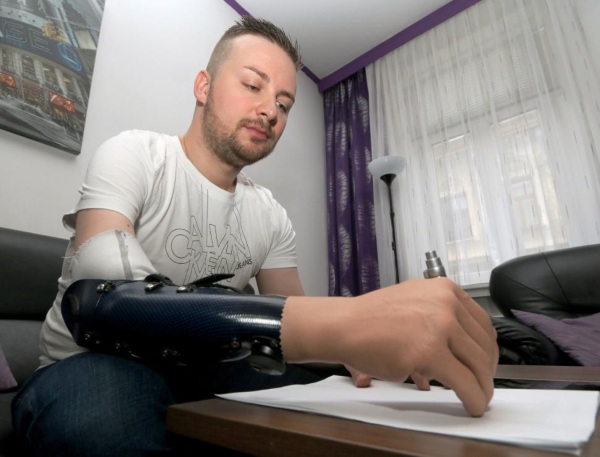
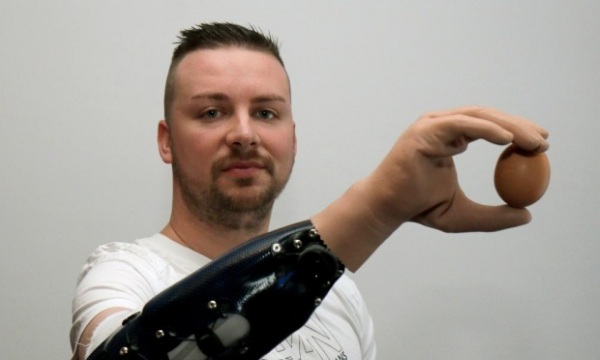
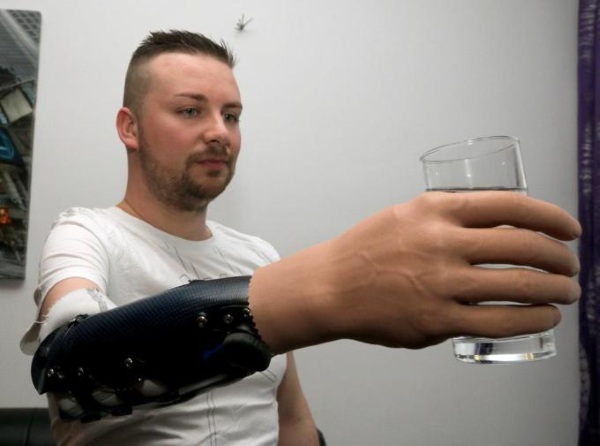
In a test called the “Southampton Hand Assessment” procedure, which scores a range of limb functions, the three improved their hands’ average score from 9 out of 100 to 65; 100 is considered a normally functioning hand.
Read the published report in The Lancet.
Via NewScientist
Advertisement
Learn more about Electronic Products Magazine





